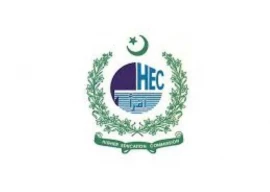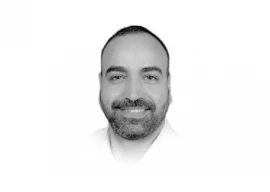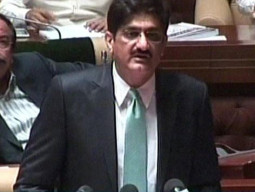
The Pakistan Peoples Party (PPP) on Thursday expressed grave concerns over the inordinate delay in laying the ordinance pertaining to the Higher Education Commission (HEC) before parliament and demanded that it should immediately be presented in the august house.
In a statement, PPP Parliamentary Leader in the Senate Sherry Rehman said the
National Assembly has been in session and to date, the HEC ordinance has not been laid before parliament. According to the Constitution, the PPP stalwart said the presidential ordinance should be presented in the house during the parliamentary session.
“It is clear that all constitutional obligations are being flouted in ‘Naya Pakistan’,”
Sherry said, “The presidency has become an ordinance factory and the government is hell-bent on destroying the state institutions.”
Meanwhile, PPP Secretary General Farhatullah Babar said that issuing an ordinance when either house was in session in itself is “unconstitutional”. Not laying it before parliament even after promulgation made it a “criminal assault” on the independence of the regulatory body for higher education, he was quoted as saying in the official handout.
Babar, a former Senator, lamented that ordinances were not laid even when sessions of NA and Senate were called after its promulgation, exposing the “grossly mala fide intent” behind it.
Any legislation pertaining to regulatory bodies like HEC falls within the domain of the Council of Common Interest (CCI) but it was not discussed at the platform of the council either, he said, adding that the timing of the ordinance also raises serious issues in transparency, accountability, and conflict of interest. “By not consulting provinces, the federation has also assaulted constitutionally guaranteed provincial autonomy,” he said.
Babar alleged that placing the regulatory body of HEC under the education ministry was unconstitutional. “It was also a blatant misuse of the president’s powers to issue ordinances, an unacceptable infringement upon the domain of CCI in which all provinces have equal stakes, and a disregard of the Supreme Court verdicts about the independence of regulatory bodies.”
Like the HEC and the State Bank of Pakistan, Senator Sherry claimed ordinances that alter the nature of public institutions were being promulgated without recourse to constitutional mandatory obligations to bring them to parliament. “One institution, the HEC, is being stripped of its autonomy to become the handmaiden of the government while the other is being given the kind of ‘autonomy’ that makes it above all parliamentary oversight of Pakistan,” she added.
“Despite parliament being in session the HEC ordinance was not brought to parliament so the federal government’s decision to sack the HEC chairman comes as a shock to the system,” the PPP senator said. Under the Second HEC Amendment Ordinance 2021, she said the HEC chairperson’s term has been changed to two years against the existing four years.
“This is an attack on HEC’s autonomy,” she said, “The power to pass an executive ordinance is vested in the president through Article 89 of the Constitution only for emergency purposes and if any of the two houses of parliament are not in session but Ad-hoc Sarkar has made presidential ordinances their preferred route for law-making.”
The PTI government should remember that a presidential ordinance is only valid for 120 days and can only be extended once, she reminded while asking how long will the ruling party govern the country like this. “How was passing the HEC ordinance overnight, for example, an emergency situation,” she asked.
Sherry accused the government of constantly issuing ordinances and bypassing parliament, alleging that state institutions are being destroyed and cronies are being awarded plum institutional offices in complete disregard of rules, quality, or merit, removing all remnants of oversight and institutional integrity.
“The country is being run on ordinances, parliament is being kept in the dark and no one knows what’s going on,” she said and expressed her concerns over the non- presentation of the ordinance before parliament and lack of discussion on it.
Sherry claimed that the government has so far promulgated over 55 ordinances, alleging that even the PMDC stands destroyed now.
“All over the country there are protests against such misrule but no voice of the opposition or civil society or stakeholders is heeded,” she said, adding that people are now getting desperate and taking all issues that should be settled in parliament to the courts.
With such a practice, she said: “Parliament is being rendered powerless... perhaps that is the plan the government is uncomfortable with running public issues via parliament. They only throw issues at parliament which they do not want to handle.”
The PPP leader also quoted few court judgments to make her point, saying that there are various judgments of the superior courts that clarify that ordinance-making cannot be used as a ruse to systematically bypass parliament.
In Ikhlas v Noorunnabi (PLD 1958 WP 283), she quoted the Sindh High Court held: “The normal legislative authority in parliament. The president’s powers of making ordinances are confined to emergencies which require immediate legislation and which arise when the Assembly is not in session.”
There are multiple rulings on this by the Senate chairman also, she added.
“The HEC is the foundation of education as it ensures quality,” she said, adding that research, scholarships, and grants are under its domain.
In its 2018 manifesto, Sherry said the PTI had promised to bring reforms in this sector but all they are doing is “slashing the HEC’s budget and taking away its autonomy.”
Condemning the government’s “unconstitutional behavior” for going way above the law, she alleged that HEC, PTDC, PIA, Steel Mill, and PMDC are all examples of the government’s destruction.
“There needs to be accountability as the government is answerable to its people,” she said.

1725877703-0/Tribune-Pic-(5)1725877703-0-165x106.webp)



1726722687-0/Express-Tribune-Web-(9)1726722687-0-270x192.webp)














COMMENTS
Comments are moderated and generally will be posted if they are on-topic and not abusive.
For more information, please see our Comments FAQ